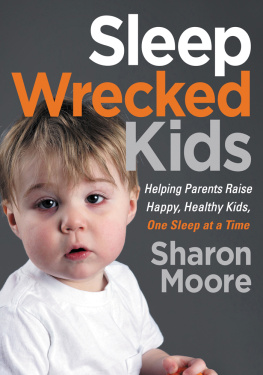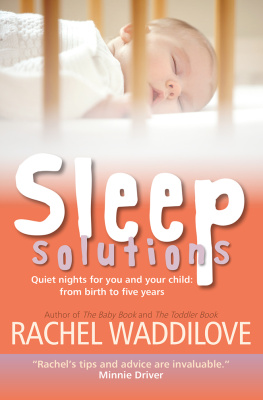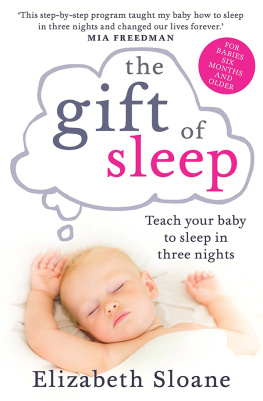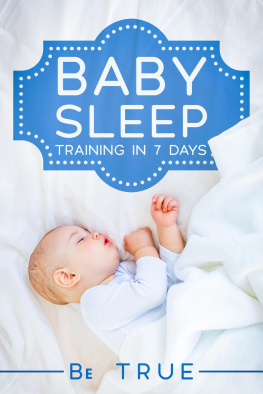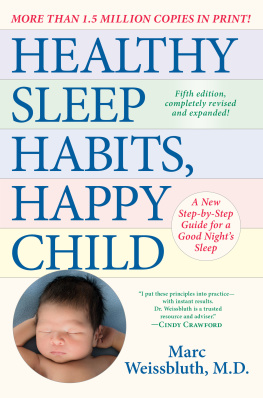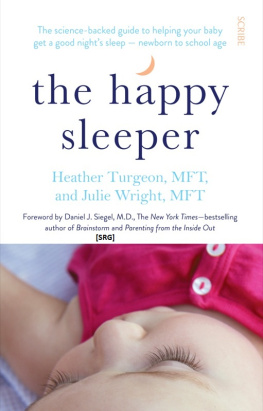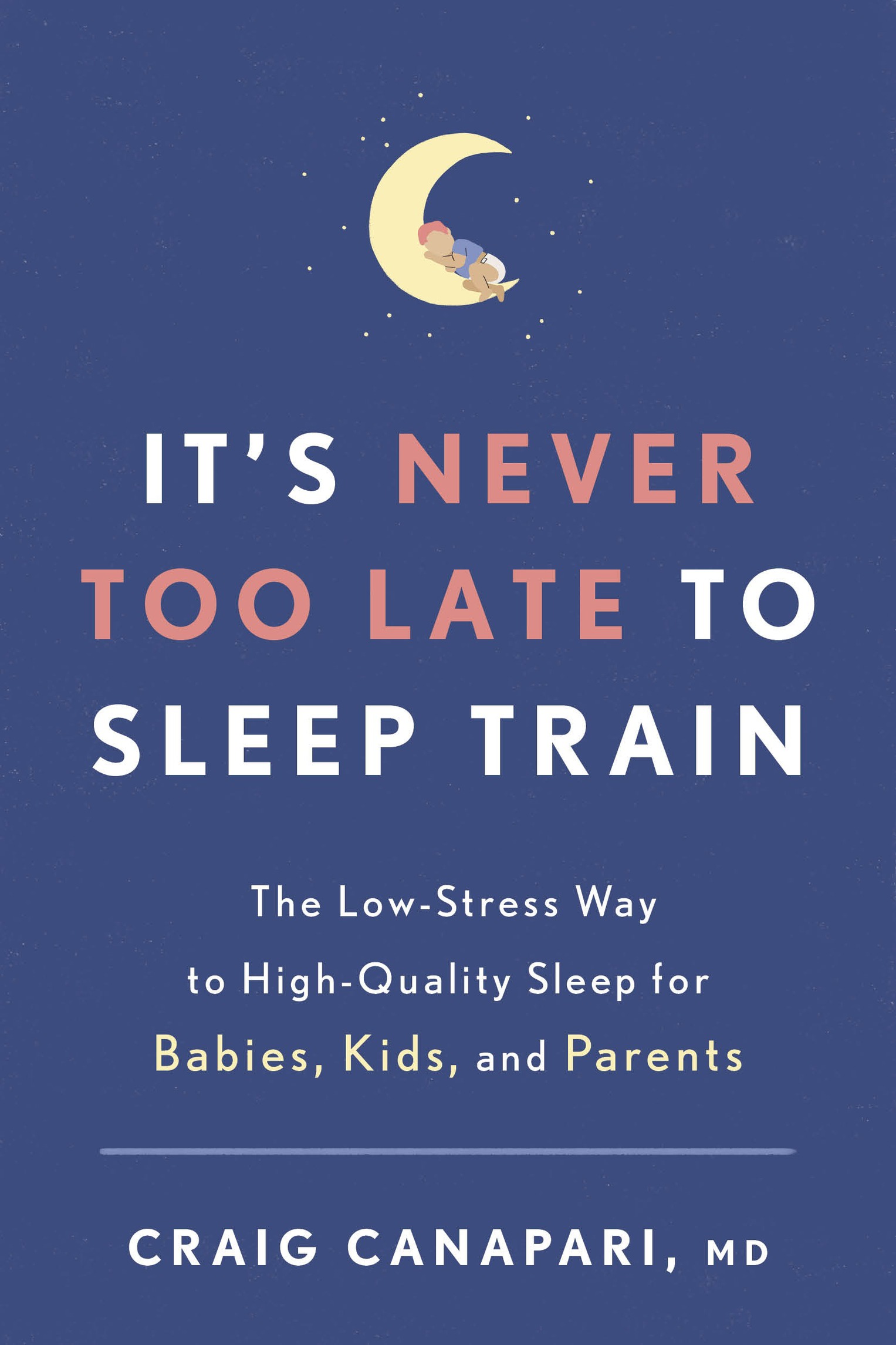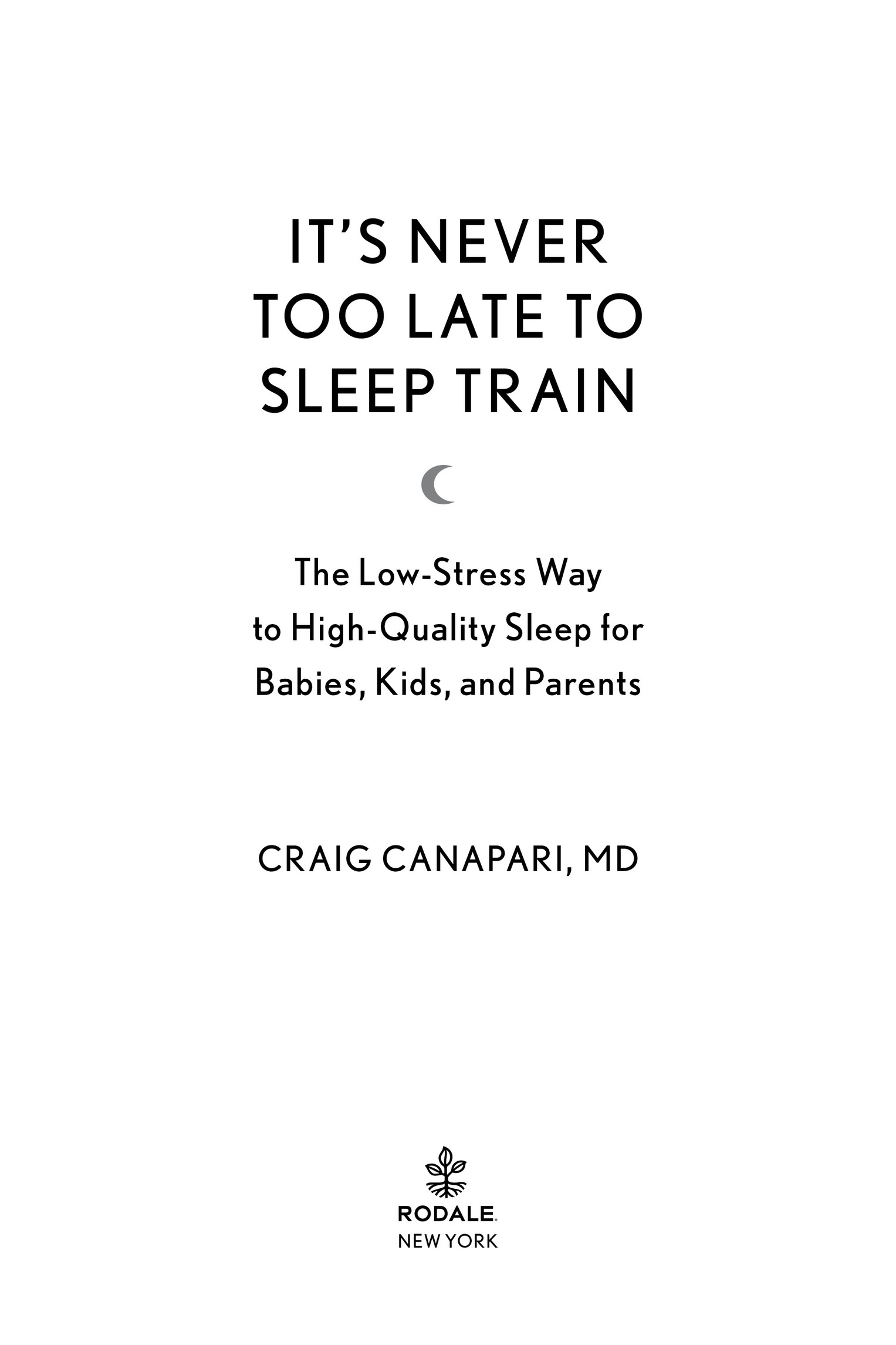Contents
Landmarks
Print Page List
The material in this book is supplied for informational purposes only. No book can replace the diagnostic expertise and medical advice of a trusted professional. Please be certain to consult with your health care professional before making any decisions that affect your childs health, particularly if your child suffers from any medical condition or has any symptoms that may require treatment.
Copyright 2019 by Craig Canapari
All rights reserved.
Published in the United States by Rodale Books, an imprint of the Crown Publishing Group, a division of Penguin Random House LLC, New York.
crownpublishing.com
rodalebooks.com
RODALE and the Plant colophon are registered trademarks of Penguin Random House LLC.
Library of Congress Cataloging-in-Publication Data is available upon request.
ISBN9781635652727
Ebook ISBN9781635652734
Illustrations by Peter Arkle
Cover design and illustration by Sarah Horgan
v5.4
ep
To Jeanna, Charlie, and Teddyyoure the reason I get out of bed in the morning. In the case of Teddy, often literally.

CONTENTS
CHAPTER 1
The Biology of Bedtime: How Children Sleep (and How to Make It Better)
CHAPTER 2
Hacking the Habit Loop: The Key to Solving Bad Sleep
CHAPTER 3
Smoothing the Path: Habits to Address Before Sleep Training Begins
CHAPTER 4
Location, Location, Location: How to Create the Ultimate Sleep Dojo
CHAPTER 5
Timing: Finding the Best Bedtime for Your Child
CHAPTER 6
Bedtime Flow
CHAPTER 7
The Solution Begins with You
CHAPTER 8
Choosing Your Consequences
CHAPTER 9
Staying in the (Habit) Loop

INTRODUCTION
Jane was crying in my office. I passed her a box of tissues. I cant remember the last time Ive had a good night of sleep, she told me, sniffling.
She was a well-dressed woman in her late thirties. Her husband, who had come straight from his job at the hospital, looked down at his well-worn clogs. Nathan, their thirteen-month-old boy, quietly sat in his mothers lap, playing with her purse straps.
Everything was going pretty well for the first five months, but then we went on a trip, Jane explained. He wouldnt go to sleep on his own, so I nursed him to sleep and put him down between us. Since then, Nathan refuses to go to sleep without me.
Tell me about a typical night in your home, I asked.
We have dinner around 6:00 p.m., then Nathan has a bath. We go to his room and read some stories. Then I need to lie down with him in our bed to nurse him to sleep. If Im lucky, I can get up for a few hours, but sometimes I just fall asleep. After 11:00 p.m. he wakes me up to feed every few hours. Then hes up at 5:00 a.m.
What have you tried to address this?
We tried the cry-it-out method, but he cried until he threw up, so we stopped.
What are you most worried about?
Well, Im going back to work full-time, and Im really worried I wont be able to function. This has been really hard on my marriage as well. My husband usually goes and sleeps in the other room. More than anything, though, Im worried Ive ruined my sons sleep.
Ive been in sleep medicine for a decade and direct the Yale Pediatric Sleep Center in New Haven, Connecticut. In my practice, I see people from all walks of life who struggle with the sleep of their childrensingle parents and married couples, doctors, construction workers, waiters, hedge fund managers, and car dealers. These parents have a few things in common: They love their children and want what is best for them. They are exhausted. And they dont know what to do about it.
If youve picked up this book, Im guessing that you are in a similar position. Perhaps Janes story is similar to your own. Or maybe you have a five-year-old who comes into your room ten times a night. Or maybe your three-year-old has a mega-tantrum every night when its time to brush her teeth and go to her bedroom.
If your child isnt sleeping well at night, this book is for you.
This book has one goal: getting your child to fall asleep, stay asleep, and wake up happy in the morning. And that means that you can fall asleep, stay asleep, and wake up happy in the morning.
This book is designed to be useful for even the most tired parent. I encourage you to read it front to back, but each chapter will begin with a clear description of its contents. If, say, your child sleeps in his own room and does not nurse, you can skip the parts aimed at parents who need to wean a nursing toddler who wont sleep in his own room.
Good sleep is the foundation of health and success for everyone in your family. It is necessary for growth, health, safety, and happiness.
Bad Sleep Sucks
Sleep problems are incredibly common in children. More than a quarter of parents will discuss sleep issues with their childs pediatrician. This is only the tip of the iceberg, as parents tend to underreport behavioral issues, out of a misguided impression that acknowledging them reflects failure as parents. Another survey of parents of young children said that a whopping 90 percent of parents would change something about their childs sleep. And not only are sleep problems common, but the consequences of them can be severe.
Sleep debt is cumulative. That means the cost to your mood and attention increases the longer your sleep is disrupted. Its hard enough to balance home and work when you feel energized and awesome. Trying to do it when youre addled by lack of sleep is a serious challenge. No wonder being a sleep perfectionist has become so trendy. According to a recent article in the New York Times, sleep is the new status symbol. Executives who once bragged about how little sleep they need now brag about how much they get every night. Expensive sleep gadgets, gear, and consultants are all the rage.
But, as the Times article confirmed, sleep is a serious health issueand a serious public health issue, too. The average grown-up (say, you or me) who misses just two hours of sleep two nights in a row suffers effects similar to those of someone was has missed a full night of sleep. And driving tired can be as dangerous as driving drunk. Thats why many states now have drowsy-driving laws that consider sleep-deprived drivers to be legally impaired. Sleep deprivation is also responsible for a wide range of serious health problems, including depression.
Your children may fare a little bit better after a sleepless night than you do. They can always catch a short nap here and there, in the car or stroller. Still, those odd intervals of sleep dont yield the same benefits as a good nights sleep. Research shows that tired kids have a hard time regulating their behavior and retaining information. Small children who are sleep deprived arent likely to nod off in the sandbox. They are much more likely to be hyperactive, to struggle with peers, and to be obese. And they are more likely to experience sleep problems throughout childhood and adolescence, perhaps even into adulthood (surveys of adults with insomnia suggest that sleep problems commonly start in childhood). A study from Australia of more than two thousand children showed that children who were able to sleep independently through the night by age five had a significant advantage over their peers in terms of emotional regulation.


